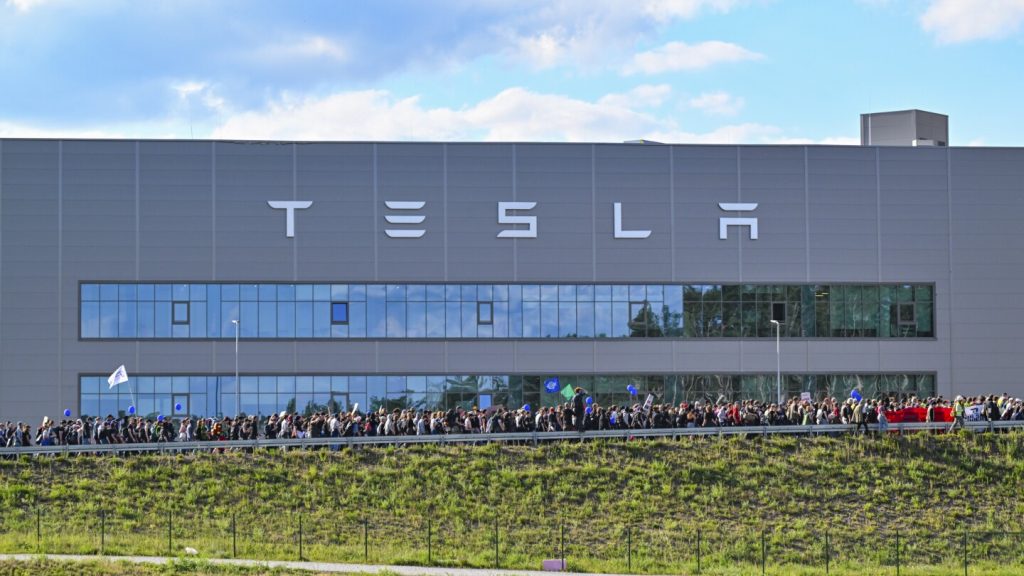The local council in Gruenheide, Germany, has approved a plan by Tesla to expand its first plant in Europe, despite persistent protests from activists concerned about water and deforestation. The council voted 11-6 in favor of the proposal, which includes adding a freight depot and logistical space to the factory. The original plan would have required the clearing of over 100 hectares of trees, but the scaled-down version involves fewer trees being felled. Activists have been protesting in a nearby forest since February, and a court recently ruled that police cannot remove tree houses built by the activists.
Despite the protests, the state government of Brandenburg welcomed the council’s decision, with the regional economy minister describing it as a positive sign for the future development of Gruenheide and Tesla. The approval comes after a suspected arson attack on an electricity pylon disrupted power supplies to the factory for nearly a week in March. The attack was claimed by a far-left group, prompting Tesla CEO Elon Musk to criticize the perpetrators as “dumb eco-terrorists” and defend the company’s production of electric vehicles as necessary for reducing reliance on fossil fuels.
The decision to expand the Tesla plant marks a significant development for the region, as it is Tesla’s first factory in Europe and has the potential to create economic opportunities. However, the ongoing protests highlight the environmental concerns raised by local residents and activists. The “Stop Tesla” group, which has been leading the protests, expressed disappointment over the council’s decision and pledged to continue demonstrating in order to protect the water and forest in the area. The tensions between the company, local government, and activists reflect the broader debate over the balance between economic growth and environmental protection.
The approval of the expansion plan underscores the government’s support for Tesla’s presence in the region and the potential benefits it could bring in terms of job creation and economic growth. While the decision may be seen as a win for Tesla and the local economy, it also raises questions about the environmental impact of the factory’s operations. As the protests continue and environmental concerns persist, the conflict between development and conservation in Gruenheide highlights the challenges faced by communities grappling with the consequences of industrial expansion. It remains to be seen how the tensions between Tesla, activists, and the local government will be resolved as the project moves forward.


